Scientific Name: Vetiveria Zizanioides
Origin: Indonesia
Plant Part: Root
Scent: Woody, Smoky, Earthy, Herbaceous, and Spicy
Color: Golden-Dark Brown
Consistency: Thick
Perfumery Note: Base
Initial Aroma Strength: Medium
Extraction Method: Steam Distilled
Vetiver Essential Oil: Uses, Benefits, and Blends
Vetiver Essential Oil is one of the most highly sought-after oils in the perfume industry. Particularly popular in men’s fragrances, the spicy and seductive aroma of Vetiver will leave you wanting more. In addition to its perfume prowess, this oil is also great to add to baths, lotions, and moisturizers. Research indicates that the inhalation of Vetiver may help reduce feelings of stress and anxiety, so get sniffing!
Vetiver is actually a fragrant grass, similar to lemongrass and citronella. Native to India, the grass now grows in many tropical regions around the world. Today, Indonesia and Haiti are also major producers. Most vetiver is vegetatively propagated, meaning it is essentially a clone of its parent. Vegetative propagation occurs naturally when a bud from the parent plant falls to the ground and regenerates, though it can also be done by growers taking parts of the parent plant and encouraging new growth. The grass itself helps to stabilize soil and combat erosion, in addition to being wildfire resistant. Vetiver oil comes from the roots of the grass, and you will find it in Aromatherapy, cosmetics, soaps, and herbal skincare products.
Vetiver Essential Oil Benefits: Component Breakdown
-
- Khusimol: A sesquiterpene, makes up the majority of Vetiver Oil. The component that is responsible for many Vetiver Essential Oil benefits.
- Vetiselineol: Vetiselineol is a minor sesquiterpene alcohol, present in Vetiver Oil.
- Cyclocopancamphan-12-ol: A naturally occurring plant component.
- a-Cadinol: A sesquiterpenoid alcohol, natural to plants. Make sure of the many Vetiver Essential Oil benefits.
- a-Vetivone: alpha-Vetivone is another sesquiterpenoid present in Vetiver.
- β-Vetivene: Organic sesquiterpenoid.
Vetiver Essential Oil Uses: For Wholesale Purposes
Perfume
Perfumery makes its appearance in the list of Vetiver Essential Oil uses. Vetiver is very popular in the perfume industry, particularly in fragrances for men. In fragrance terms, Vetiver is somewhere between a middle and a base note and falls under the “woody” category in scent. Its aroma is sweet, lush, and smoky, and offers a strong foundation for other scents. Examples of designer perfumes you can find vetiver oil in include Chanel’s Sycamore, Paris Hilton’s Heiress, and—for men—Original Vetiver by Creed.
Soap Making
 Vetiver Oil is believed to have both antiseptic and detoxifying properties. There are many claims on the Vetiver Essential Oil benefits in terms of skincare, though current research is either not available or conflicting. What we do know is that some of the Vetiver’s core components show antioxidant activity on their own. This gives some indication that vetiver may hold antioxidant properties. Additionally, the scent of Vetiver Oil offers a beautiful fragrance when the oil is added to skincare products, such as soap, which creates added value.
Vetiver Oil is believed to have both antiseptic and detoxifying properties. There are many claims on the Vetiver Essential Oil benefits in terms of skincare, though current research is either not available or conflicting. What we do know is that some of the Vetiver’s core components show antioxidant activity on their own. This gives some indication that vetiver may hold antioxidant properties. Additionally, the scent of Vetiver Oil offers a beautiful fragrance when the oil is added to skincare products, such as soap, which creates added value.
Aromatherapy
Vetiver is highly popular in Aromatherapy. Among tons of Vetiver Essential Oil uses, Aromatherapy is one of the most significant ones. Currently, there is a lack of human research, but studies conducted on rodents found that when the subjects inhaled Vetiver Essential Oil, they showed signs of relaxation. Furthermore, other studies done on humans indicate that Vetiver Oil may help improve breathing patterns during sleep. Not getting enough sleep is a major trigger for stress, anxiety, and depression, which means that Vetiver may help reduce these symptoms.
What Blends Well with Vetiver Essential Oil?
On a deeper note, Vetiver can help stabilize other oils, creating longer-lasting fragrances. Try combining it with Ylang-Ylang, Jasmine, or Lavender for a woodsy, floral aroma. If you prefer something a little brighter, go for Citrus Oils such as Lemon, Grapefruit, and Lime.
Precautions: How to Apply Vetiver Essential Oil
Vetiver Oil is generally considered non-toxic, though, like any essential oil, it is very potent and should never be ingested or applied to the skin without dilution. If you are pregnant, breastfeeding, or suffering from an underlying condition, it is always best to seek the advice of a medical professional before using oils. Additionally, pets are more sensitive than we are, and should never come in direct contact with essential oils.
Popular methods of use are:
Inhalation
Add Vetiver Oil to a passive or active diffuser, following manufacturer guidelines. You can also add oil to hot water, such as a bathtub or foot soak, or even sniff the oil directly from the bottle for a more immediate effect.
Topical
Add and combine a few drops of Vetiver Oil with your favorite creams and lotions. You can also add it to a carrier oil and then massage it into the skin. When using topically, we advise doing a patch test first. This is where you place a small amount of the diluted oil onto your skin and wait for 24 hours. If no irritation occur,s you are okay to move forward.
Flash Point
93°C
Conclusion
Vetiver Oil is one of the most popular perfume additives in the world. Its sweet, smoky aroma also makes it a great addition to skincare products. When used for Aromatherapy purposes, Vetiver Oil may be able to help combat feelings of stress and anxiety. At VINEVI,DA we source our Vetiver from Indonesia, where the tropical climate helps this grass grow long and strong. In addition to helping to create this sweet, spicy oil, Vetiver also helps with soil remediation, which is crucial to countries such as Indonesia.

- Reviews
- Questions

Smells great
Smells great. I just wish there was a way to harvest vetiver more affordably. ;-)
Have not had time to use it yet
Have not had time to use it yet but I can hardly wait
Appealing during the cold weather
Love the smell of the Vetiver. Is most apt during the cold, whereas it is heavy. Have started to wear it as a single fragrance. The bottle is LEAK PROOF.
You may also like
Recently viewed

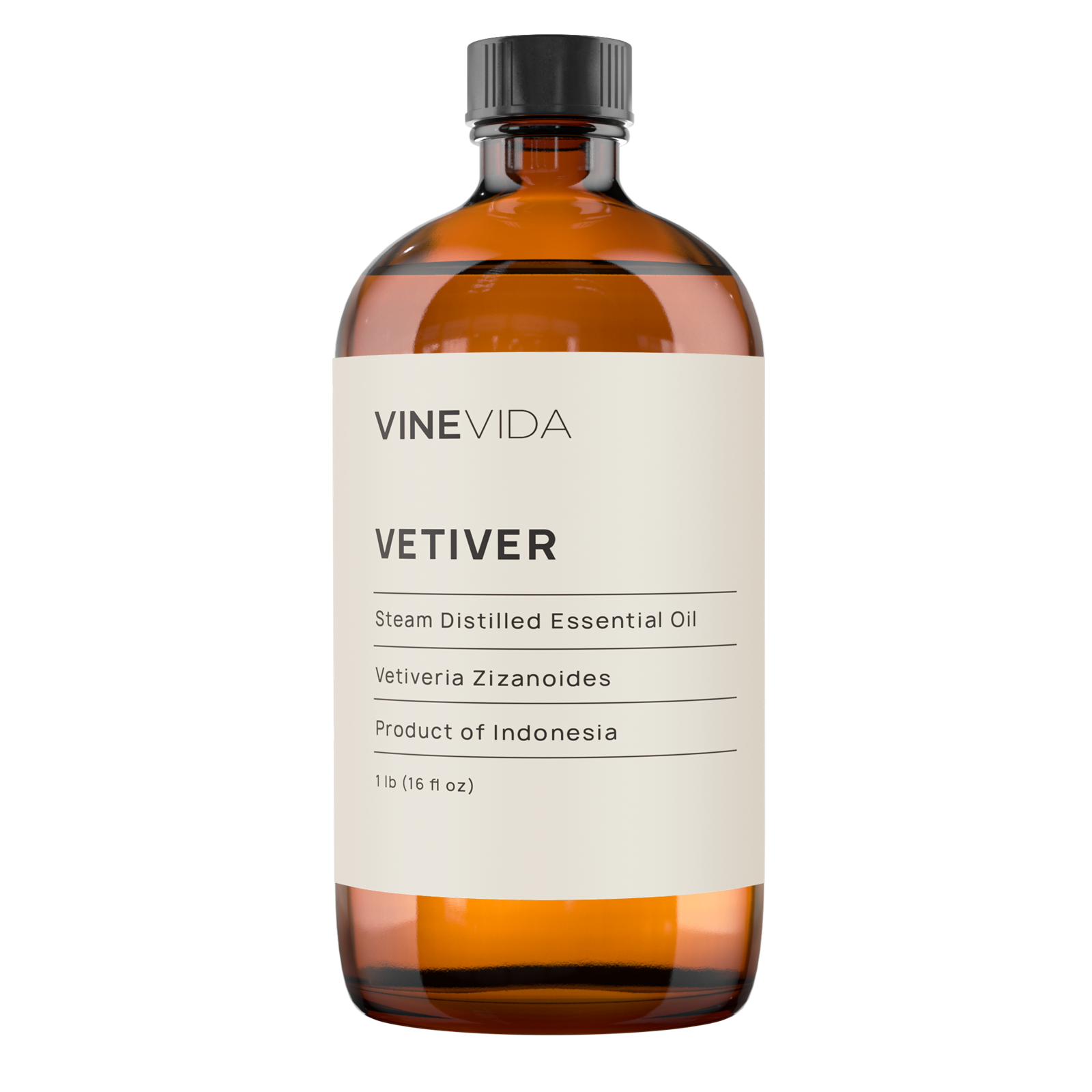
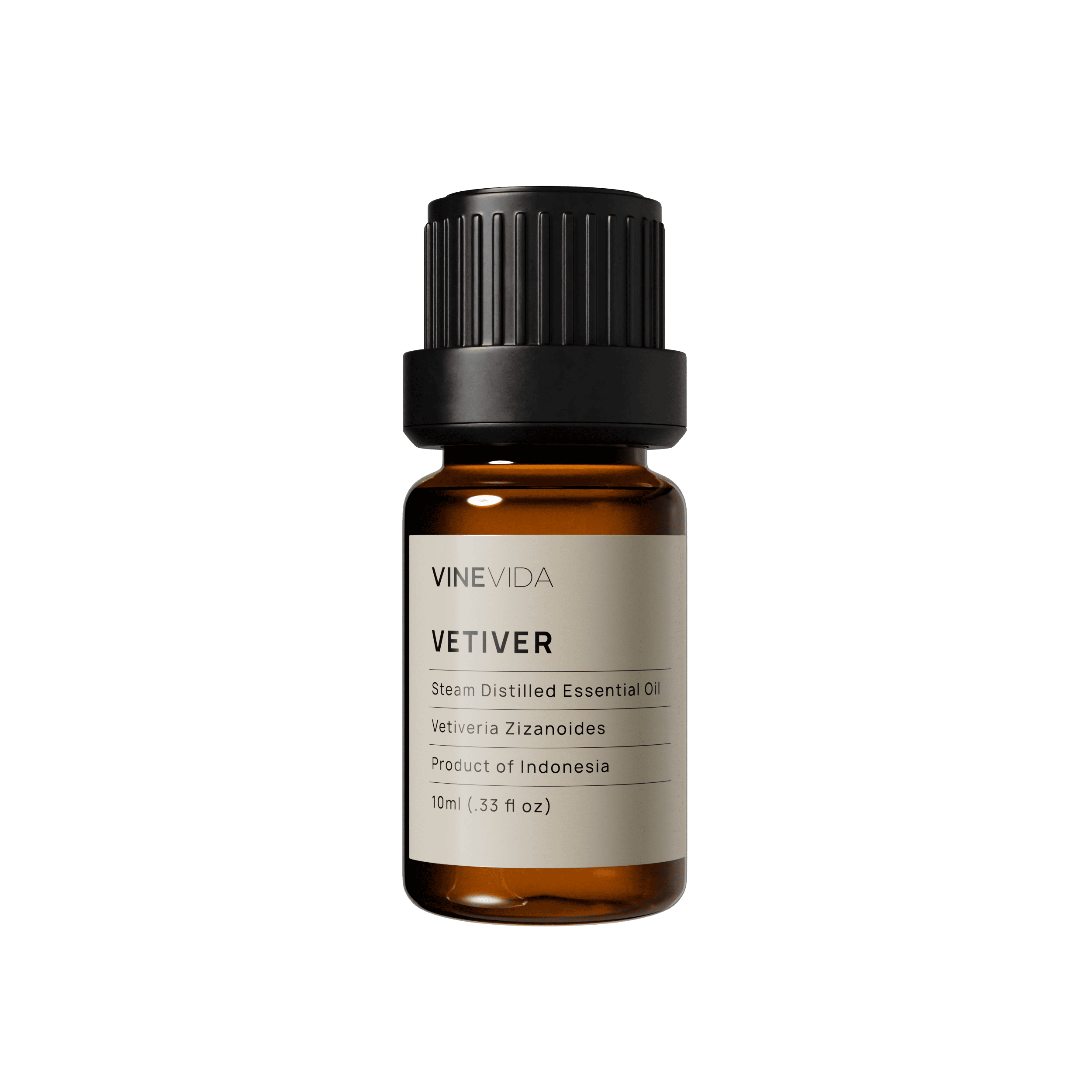
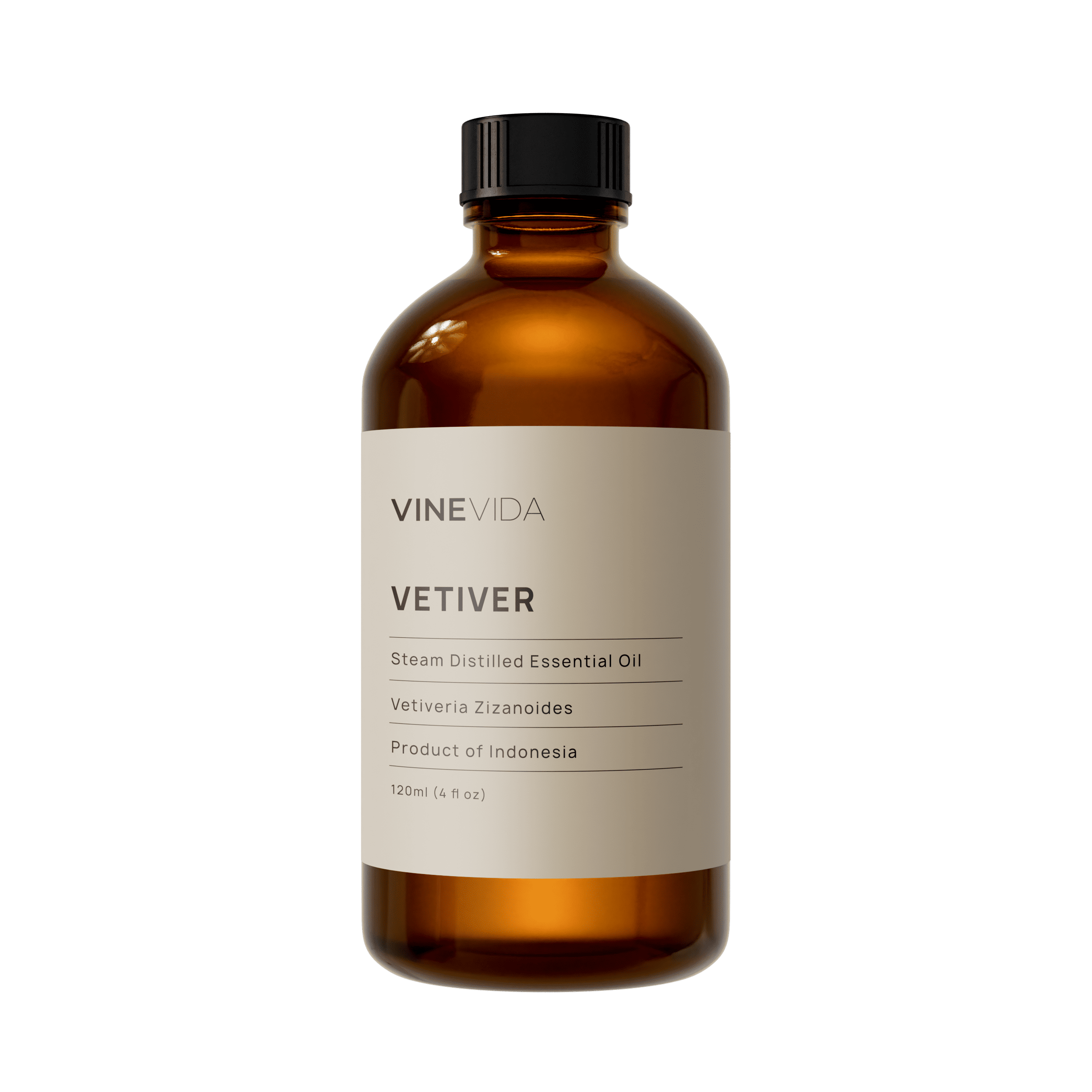
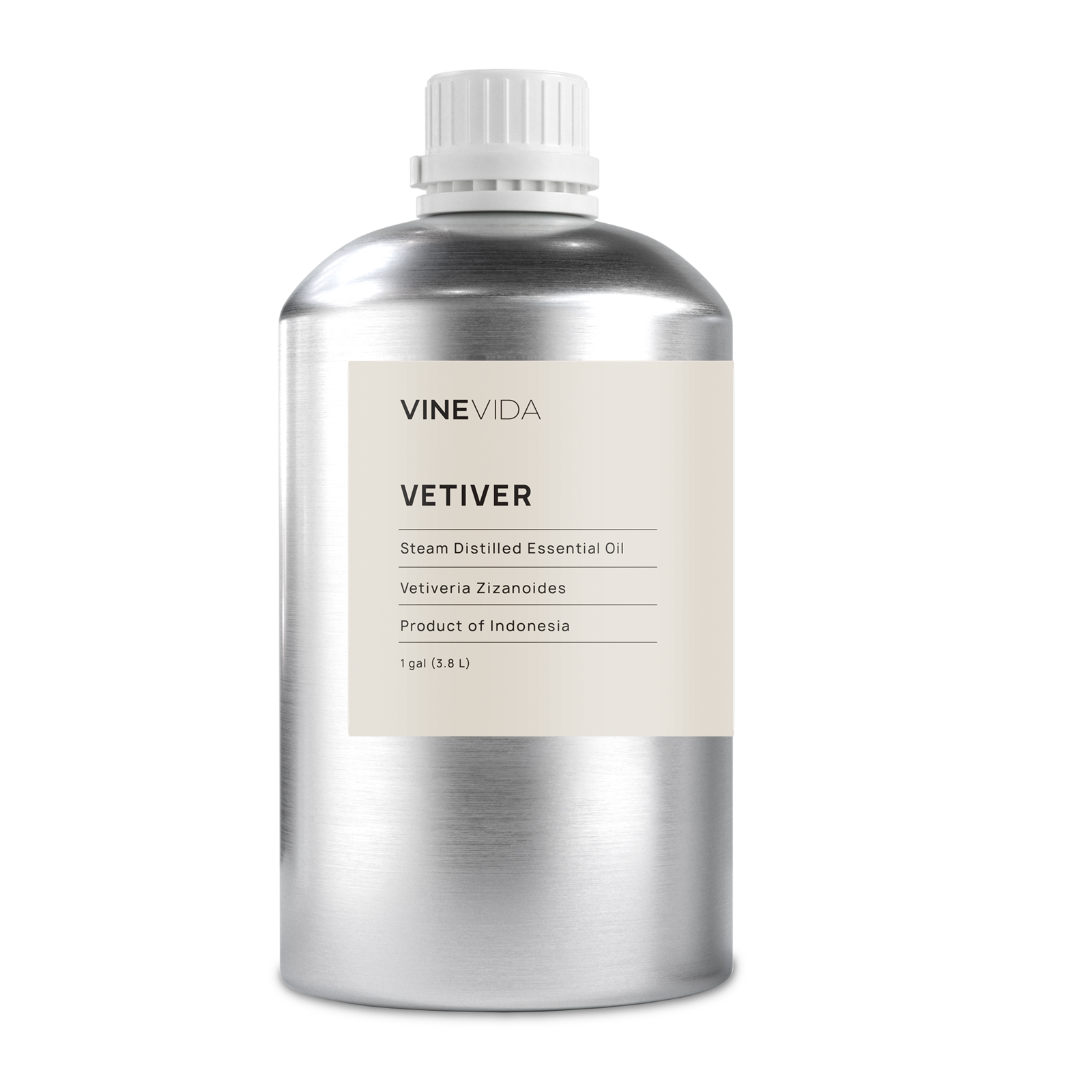
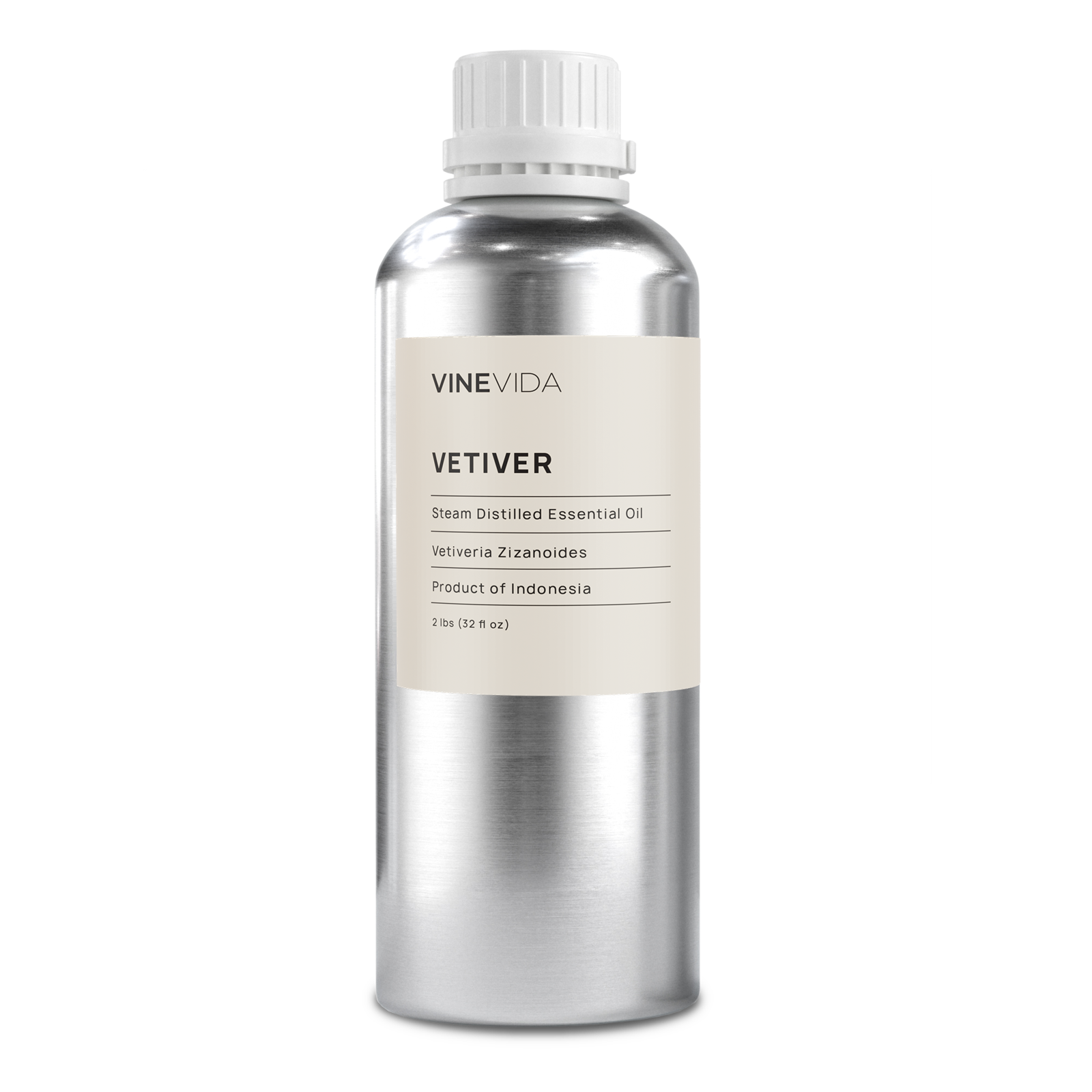
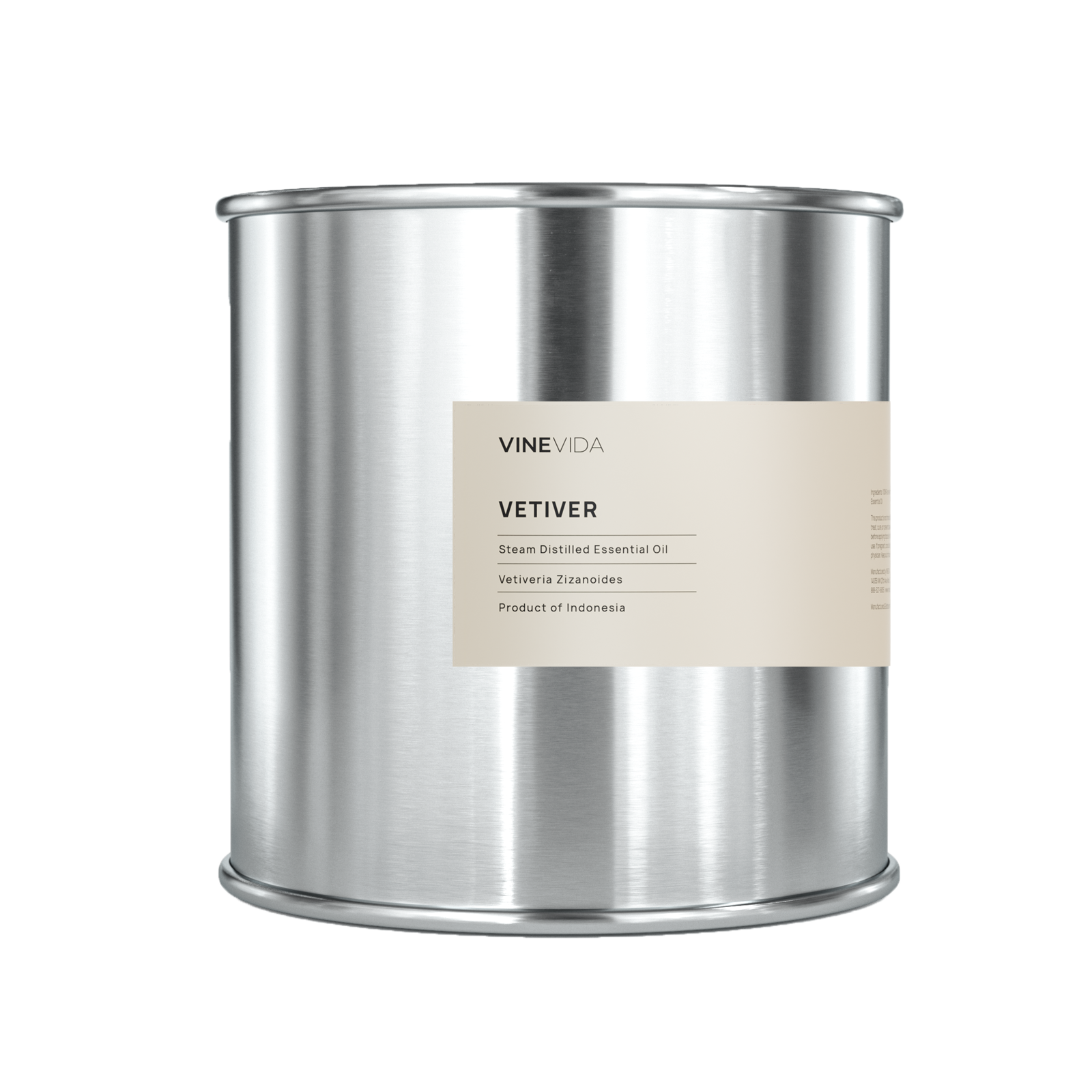
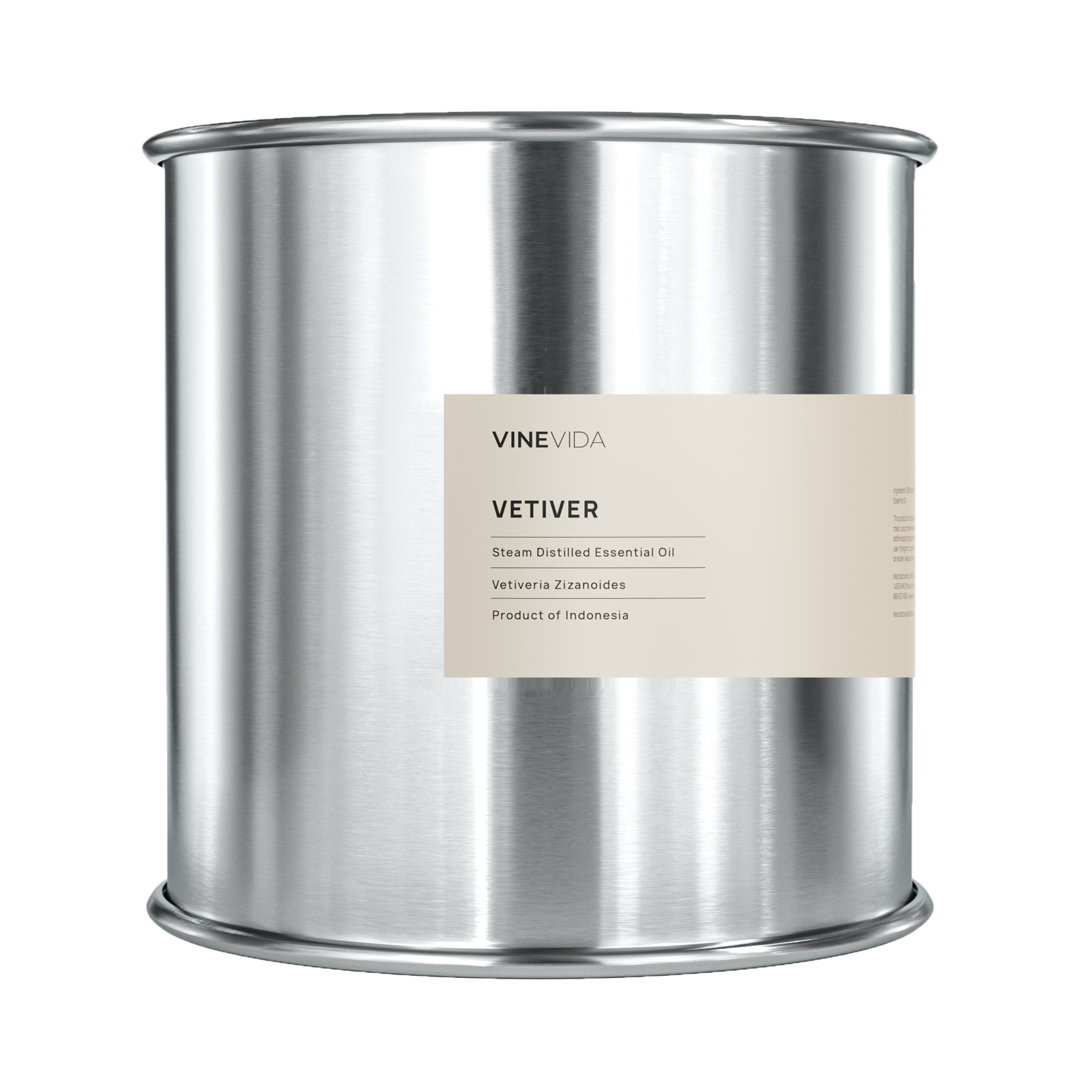
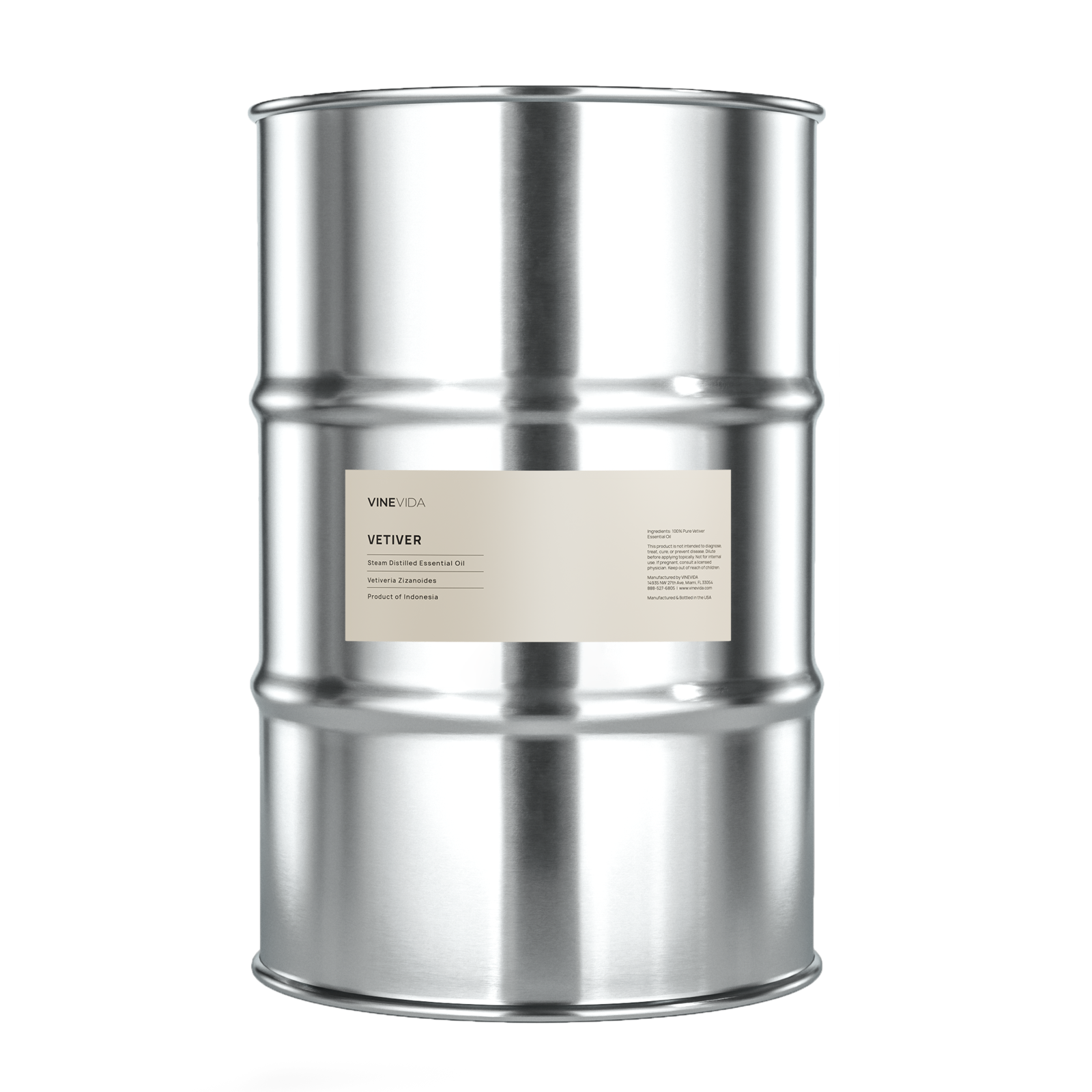




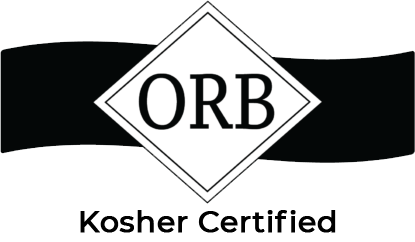
 IFRA Statement
IFRA Statement


















